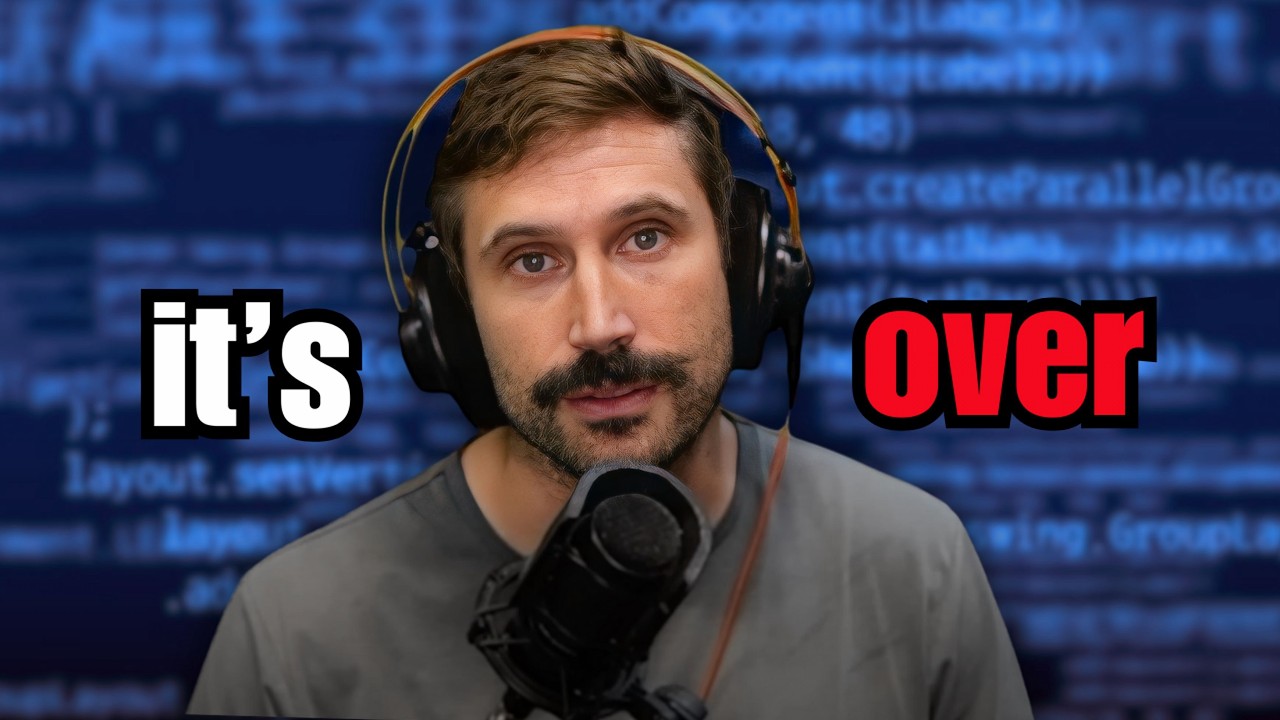The video argues that technological advancements like no-code tools, cloud computing, and AI do not eliminate developers but transform their roles, emphasizing the importance of system architecture and design. It warns that AI is an enhancer, not a replacer, and highlights the need for human oversight to ensure cohesive, efficient systems, as past innovations often increased complexity rather than reducing it.
The video critically examines the recurring cycle in technology where new innovations, such as no-code tools, cloud computing, and AI-assisted development, are heralded as solutions that will make developers obsolete. Historically, each wave of technological advancement promises to eliminate the need for technical expertise, but in reality, these innovations tend to transform roles rather than replace them entirely. For example, no-code platforms didn’t eliminate developers but created specialized roles like no-code experts, often commanding higher salaries. Similarly, cloud computing shifted system administrators into DevOps engineers, emphasizing transformation over outright replacement.
The speaker emphasizes that these technological shifts reveal a fundamental truth: the most valuable skill in software engineering is system architecture and design, not just coding. Using the analogy of an orchestra, the role of a conductor is compared to that of a system architect—guiding, harmonizing, and interpreting the overall vision. Without strong architectural leadership, even perfectly executed individual components can result in a chaotic and inefficient system, akin to an orchestra playing without a conductor. AI tools, while capable of generating code, lack the holistic judgment and nuanced understanding necessary for cohesive system design.
A significant concern raised is that AI-generated code often lacks coherence and can introduce inconsistencies, such as redundant calculations or unnecessary complexity. The speaker warns that AI tools tend to produce plausible but flawed code, which requires experienced developers to verify and correct. This highlights that AI is more of an enhancer than a replacer; it elevates the role of skilled engineers who can interpret, refine, and architect systems rather than simply produce code. The analogy of an orchestra underscores the importance of human oversight to ensure harmony and purpose in software projects.
The discussion also critiques the overhyped promises of AI and other technologies, noting that many past innovations—like microservices, offshore development, and low-code platforms—initially seemed to promise cost savings and efficiency but often resulted in increased complexity, higher costs, and new problems. The core issue is that making code more accessible and faster to produce does not eliminate liabilities; it often amplifies them. The speaker argues that code, especially when produced rapidly and without careful oversight, becomes a liability rather than a strategic advantage, emphasizing the importance of thoughtful architecture and holistic judgment.
In conclusion, the speaker advocates for a balanced approach that combines practical system architecture, effective communication, and experience—skills that AI cannot replicate. They warn against blindly trusting AI to produce perfect code or architecture, emphasizing that without human oversight, systems risk becoming noisy, inconsistent, and unmanageable. The overarching message is that technological progress tends to shift roles and responsibilities rather than eliminate them, and the most critical skill remains the ability to design, interpret, and oversee complex systems—much like a conductor guiding an orchestra to create harmony from individual talents.
